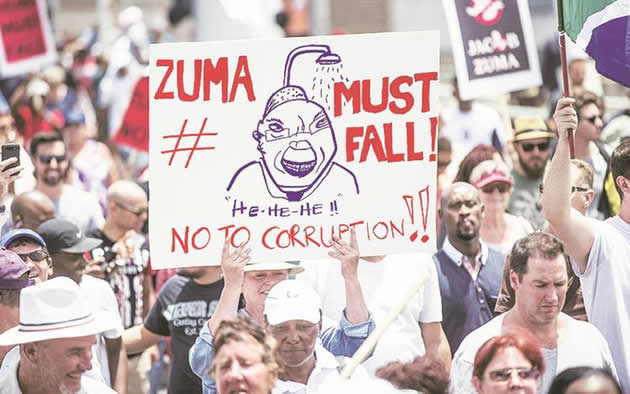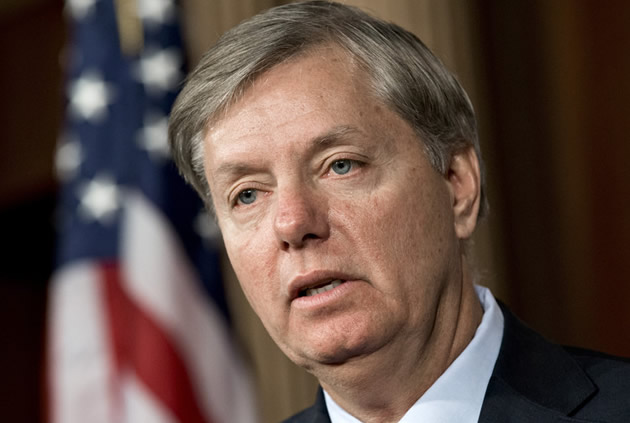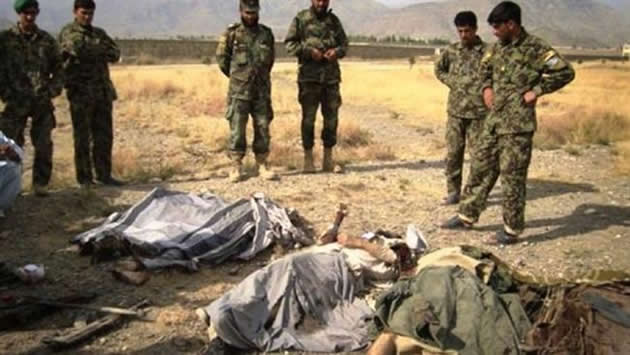White privilege and Zuma must fall


The ZumaMustFall movement is premised on the wish to shift political power back into “competent white hands”
Gillian Schutte Correspondent
When calls for South African President Jacob Zuma to fall saturated social media after he fired Finance Minister Nhlanhla Nene, I was initially enthused. At last white folk and middle-class folk in general, were mobilising for change.
I reasoned that in protest culture it is numbers that count and a mass show of citizen power could go some way to holding accountable government that does not work for the greater good.
In some cases these springs, as they have come to be known, have been the forerunner to authentic transformation.
I joined the call and, learning from the FeesMustFall movement, suggested that it was time to push aside our political differences and unite in a common cause.
But it soon became apparent that there truly is no common cause in South Africa’s highly fractured society. My own conflict set in when I began to read the language that backed up the petitions and calls for the marches against Zuma. Here you found strident white male voices leading the movement.
Couched in their language was that sense of authority, of talking down to, of insistence that Zuma must fall and so must black leadership unless it is rubber-stamped by supposedly infallible white values.
The ZumaMustFall call, I finally decided, was foiled from the start because our political landscape is so divided along so many social and historical breakages, ensuring that cohesion and common goals are a virtual impossibility.
As Julius Malema pointed out, change will only be authentic if it is black-led and motivated by the poor of the land.
In the end, and despite my enthusiasm for mass demonstrations premised on the call for justice and equality, I came to the conclusion that the cons of the ZumaMustFall movement far outweighed the pros and I gave the entire march a miss.
The cons for me were centred on the fact that the dominant thrust of the march was moderate liberal. The covert messaging indicated the wish to shift political power back into “competent white hands”.
It made only a small nod to the plight of the majority, rendered desperately poor through a system dominated by neoliberal capitalism that continues to work for white monopoly capital. It did not engage with the systemic problems of poverty and race but was concerned only with fiscal privileges for the already privileged.
It was not calling for redistribution and zero tolerance to racism.
And even if this mass march did dislodge Zuma, who would replace him?
There are those waiting in the wings who would be working for the same system anyway.
What was most astounding to me in my observations of the build-up to the ZumaMustFall march was the seeming inability of its champions to link their movement to the plentiful protest actions that occurred this year.
These include RhodesMustFall, Open Stellenbosch, FeesMustFall and the 50 000-people march by the EFF on the JSE, as well as a host of workers’ strikes. What many in the ZumaMustFall movement failed to recognise, or perhaps chose to ignore, is that all of these actions were railing against a government that does not adequately serve the needs of the majority.
Perhaps the failure to comprehend this is because all of these movements are rooted in the black condition, rising up around black concerns and led by black people. They are also all premised on the call to dismantle white supremacy and privilege, a phenomenon that most whites fail to recog- nise.
The question about why white people do not join black struggles but expect black people to join theirs was also posed in many social media conversations. Why is there never a show of white support for the plentiful uprisings in the townships and informal settlements over housing, water, service delivery, better wages, food security, industrial and mining pollution and lack of jobs?
Community protests are an ongoing phenomenon in South Africa because the social conditions in which they are rooted never change.
We have also to look back to Marikana in 2012 and ask where the white voices of outrage were when our black brethren were mowed down in cold blood? Why did the white collective not demand justice for all and the recalling of the president, on whose watch a massacre occurred?
It seems too hard for the white collective to respond with the same passion and outrage when it comes to the multiple transgressions that black citizens have to deal with daily, yearly, decade after decade.
The march against Zuma failed dismally to make this link and many black voices on social media said they would not join it for this reason. While most whites were demonstrating to hold onto their privileges, they seemed blissfully unaware that black people have been rising up the whole year against a system that continues to privilege whiteness at their expense.
In the end it is all about the double standards of privilege, wealth accumulation and a skewed, racialised economy. ZumaMustFall is about preserving white privilege whereas all the black-led movements are about dismantling white privilege.
There are intersections in middle-class concerns which did see a smattering of whites join the student uprisings and a small percentage of blacks joining the ZumaMust Fall march. But for the most part in South Africa there are black struggles and there are white struggles.
This year’s social upheaval has revealed that we are still a divided society. The bottom line is that while we accept a system that privileges a small number of people and de-privileges the majority, any attempt to rise up collectively is going to fail unless it is an authentic call to demand equality and justice for all. – idol.co.za









Comments